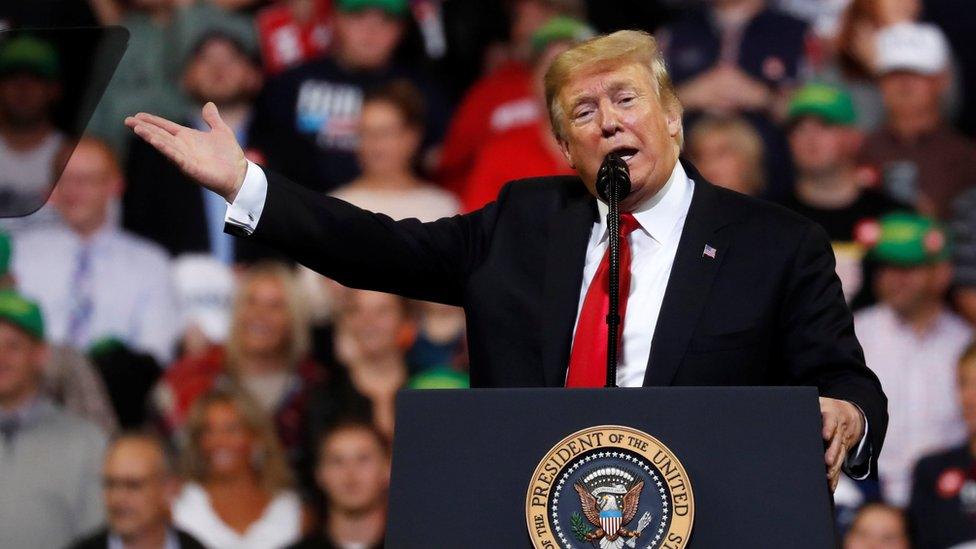US election 2020: Elizabeth Warren sets out health funding plan
- Published
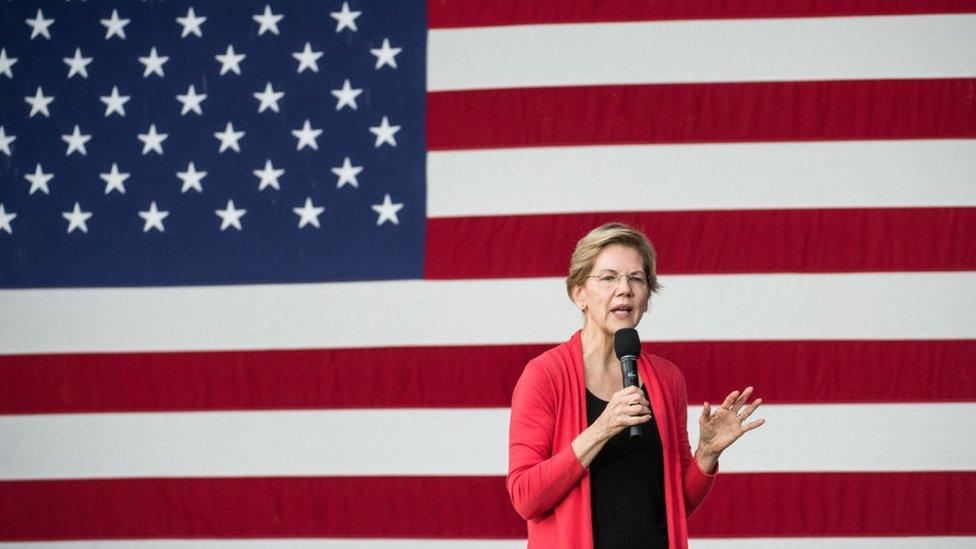
US presidential hopeful Elizabeth Warren has offered details on funding for her healthcare plan, which is expected to cost the federal government $20.5tn (£15.8tn) over 10 years.
She said "Medicare for All" would not raise taxes "one penny" for ordinary Americans, but would largely be paid for by businesses and the wealthy.
Ms Warren is a Democratic front-runner in the 2020 race to the White House.
But she has faced criticism over lack of detail about her Medicare plan.
What does her plan say?
Ms Warren, who moved clear of her key rival Joe Biden in a poll in the early-voting state of Iowa on Friday, said her plan would not spend "any more money overall than we spend now". But she said the share spent by the federal government would increase to $20.5tn.
Her plan would mandate that employers pay the government the same amount that they currently contribute for private health insurance for their staff.
According to her campaign, the current US health system will cost $52tn over the next decade. Economists have estimated the cost of Medicare for All at $13.5tn to $34tn in the same timeframe.
"The $11tn in household insurance and out-of-pocket expenses projected under our current system goes right back into the pockets of America's working people," her plan states.
"And we make up the difference with targeted spending cuts, new taxes on giant corporations and the richest 1% of Americans, and by cracking down on tax evasion and fraud. Not one penny in middle-class tax increases."
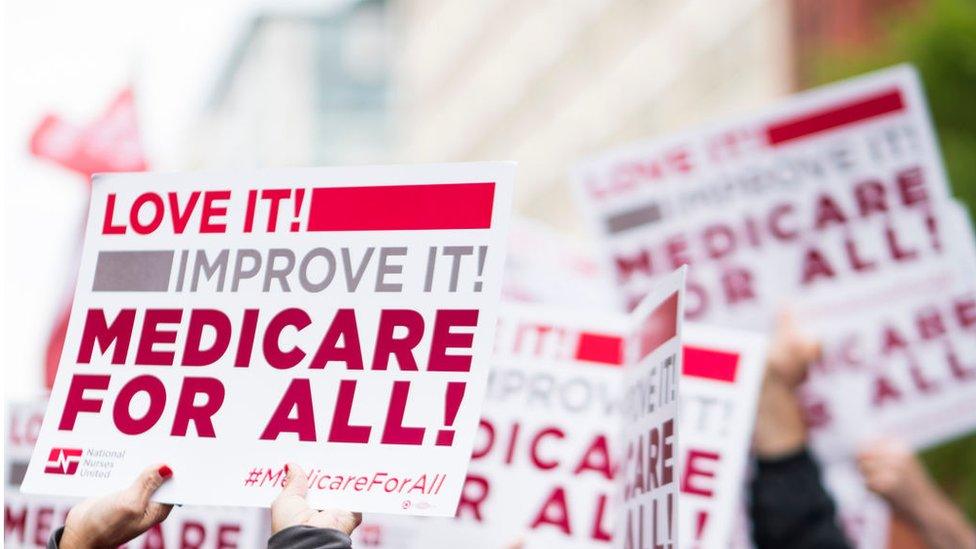
Ms Warren said she would:
raise her previously proposed wealth tax on billionaires from 3% to 6%
increase corporate taxes
tax transactions such as stock trades
raise revenue through immigration reform - by turning undocumented migrants into legal, taxpaying workers
"Healthcare in America is world-class," the Massachusetts senator wrote in her proposal. "Medicare for All isn't about changing any of that. It's about fixing what is broken - how we pay for that care."
What is 'Medicare for All'?
First proposed by Ms Warren's fellow liberal senator, Bernie Sanders, it is a measure to expand the federally run health programme for the elderly and disabled, Medicare, into a single-payer health system.
The federal government would become the sole insurance provider for all essential and preventative healthcare.
Under Ms Warren's plan, the private health insurance that more than half of Americans now receive through their employers would be replaced by free federal medical coverage for everyone.
According to her campaign, the array of often puzzling medical bills currently faced by US patients - such as premiums, deductibles, co-pays and other out-of-pocket expenses - would be abolished.
Several more moderate Democratic candidates - including another front-runner, Joe Biden - favour adding the option of government-run medical insurance for all Americans while allowing those who wish to to keep their private medical coverage.
It is not a universal healthcare system under which the government would own and operate hospitals - instead, the government would pay private providers an agreed-upon rate for their services.
Unlike Ms Warren, Mr Sanders has said his plan to pay for Medicare for all would require an increase in taxes on the middle class, without offering specifics.

Being realistic isn't the goal

Elizabeth Warren needed to come up with a healthcare plan that provided the universal coverage she promised while not raising taxes for most people. She did - although her proposal relies heavily on contributions from businesses that already pay for part of employee healthcare, as well as the very wealthy and a grab-bag of other relatively vague pots of cost savings.
$2.3tn in new revenue from more aggressive tax enforcement? $400bn from immigration reform? A 70% reduction in the cost of brand-name drugs? It's easy to put numbers on a piece of paper. It's harder to imagine these figures becoming a reality.
Being "realistic" isn't necessarily the goal of Ms Warren's proposal or even the central point of her plan-heavy campaign, however. The Massachusetts senator and her supporters would argue that pragmatism and a misplaced sense of what's possible are the enemies of substantive progress.
Critics may pick apart portions of her sweeping healthcare proposal, but it is substantive enough to protect Ms Warren from allegations that she is making promises without considering the price tag. Such questions proved to be a point of weakness for the candidate in recent debates. In the clashes to come she will be better prepared to respond.

What have Warren's rivals said?
Ms Warren is one of the leading contenders in the race to become the Democratic nominee in the presidential election a year from now. In the last round of debates, her rivals attacked her for lack of clarity on how she would fund Medicare for All.
Mr Sanders said during the debate that it was "appropriate to acknowledge" that taxes would go up.
Mr Biden, with whom Ms Warren has vied for status as frontrunner, said in an interview with PBS on Friday: "She's making it up. Nobody thinks it's $20 trillion. It's between $30-40 trillion. Every major independent study that's gone out there that 's taken a look at this. There's no way."
Pete Buttigieg told Fox News on Thursday, external that all the candidates "have a responsibility to explain how our plans are going to be paid for".
"My concern about the plan she's putting forward is not just the multi-trillion-dollar hole but also the fact that most Americans would prefer not to be told that they have to abandon their private plan."
The criticisms from more moderate Democrats continued after Ms Warren's announcement on Friday.
Allow X content?
This article contains content provided by X. We ask for your permission before anything is loaded, as they may be using cookies and other technologies. You may want to read X’s cookie policy, external and privacy policy, external before accepting. To view this content choose ‘accept and continue’.

Allow X content?
This article contains content provided by X. We ask for your permission before anything is loaded, as they may be using cookies and other technologies. You may want to read X’s cookie policy, external and privacy policy, external before accepting. To view this content choose ‘accept and continue’.

House Speaker Nancy Pelosi - a Democratic leader, though not a 2020 candidate - told Bloomberg TV, external that she was "not a big fan of Medicare for All".
Later this month, the Democratic candidates who are able to meet polling and fundraising requirements will once again take the debate stage.
- Published29 March 2019
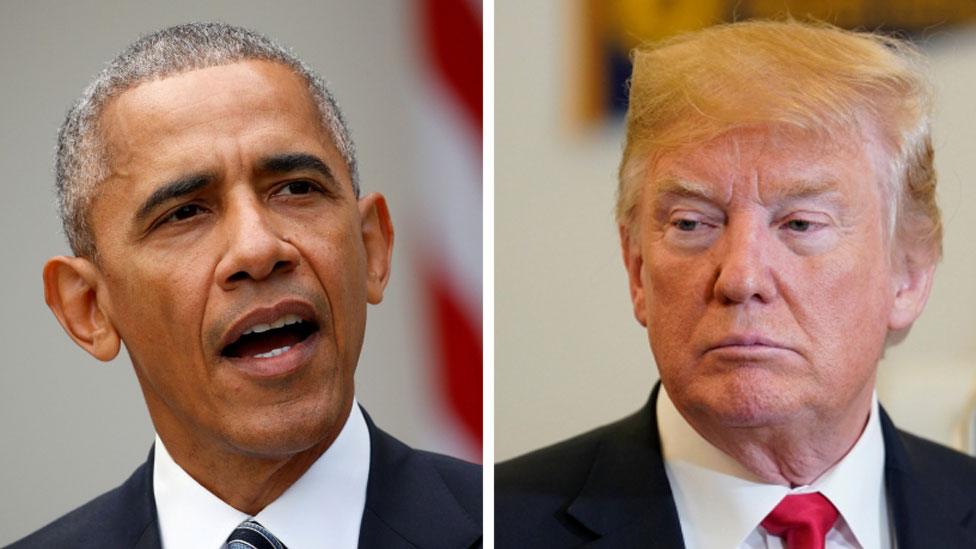
- Published14 February 2019
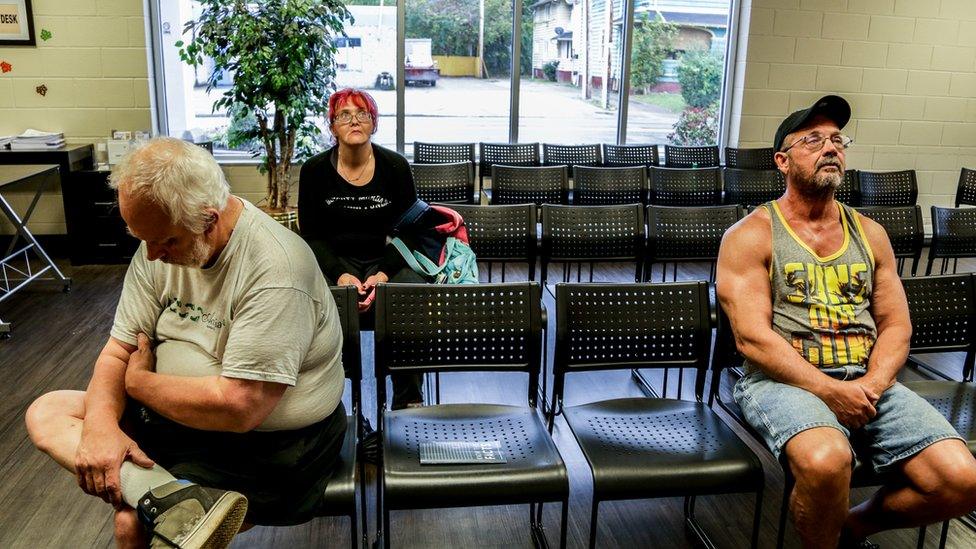
- Published10 October 2018
